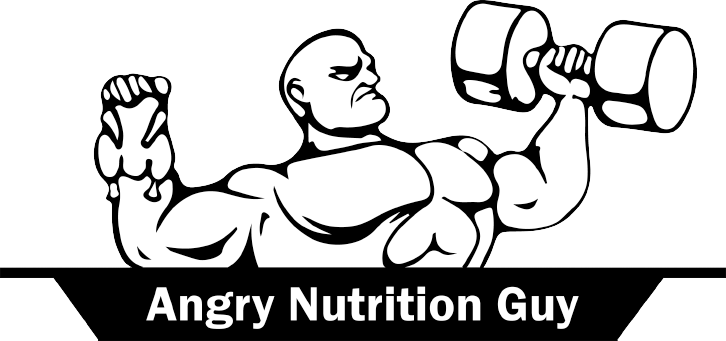
5 Go-To Tips To Control Your Appetite

Being stuck in your house all day can definitely cause an increase in appetite. However, appetite and hunger are two different things. Hunger is the physical need to eat, whereas appetite is the desire to eat. But having an increase in appetite can turn into a physiological response. So it may be from boredom, stress, or even fear, but you feel like you are hungry even though you probably do not physically need any food. Read on to learn our favorite tips to control your appetite so you’re not rummaging the fridge all day!
Protein
1. Make sure you’re eating enough protein! Protein is the most satiating of the three macronutrients (protein, carbs, fats). So load up on your lean meats, greek yogurt, protein powders, fish, etc. Make sure each of your meals and snacks contain a lean protein to avoid needing to return to the kitchen half an hour later for more food.
Fiber
2. Eat fibrous fruits and vegetables (ie blueberries, raspberries, broccoli, spinach, etc). Fiber is extremely satiating and will fill you up. *You can use frozen as well…they are just as nutritious! Read our blog about how important fiber is for your diet.
Hydration
3. Drink more water/stay hydrated, especially if you’re increasing that fiber intake. Fiber absorbs water to slow down the rate at which food leaves your stomach. Consequently you’ll be full for hours!
Sleep
4. Sleep! When we don’t get enough sleep, ghrelin (the hunger hormone) is increased, and leptin (the hormone that tells you that you’re full) is decreased. Therefore you will feel more hungry even if you have enough food coming in if you are sleep deprived.
Coffee!
5. Drink coffee 🙂 Yep, you heard that right. And this can be both caffeinated and decaf! Caffeine is a well known appetite suppressant but recent studies have actually found that decaf coffee suppresses hunger even more! So go ahead and have a cup of regular coffee in the morning to get you going and a cup of decaf in the afternoon so you don’t have a problem getting to sleep at night from the caffeine. Best of both worlds 😉
We all have succumbed to eating out of boredom or stress at times. And it makes it even more likely if we’re stuck in the house. But you can use these tools to control your appetite so you can stay on track with your nutrition during these times.






Gia Bennet Reviews
April 3, 2020 at 8:54 amThis is a topic which is near to my heart… Many
thanks! Exactly where are your contact details though?
Jordan Gross
April 9, 2020 at 12:20 pmYou can use our contact form at https://www.theangrynutritionguy.com/contact-us/ or reach out directly to theangrynutritionguy@gmail.com. Thanks!
AllenHon
August 20, 2024 at 11:59 amPhilosophy is the discipline that studies fundamental and universal questions, including existence, knowledge, values, mind, and language. It encompasses many subjects and problems, from ethics and political figures to metaphysics and logic. Here are principal aspects of philosophy:
1. Definition of Philosophy
Philosophy comes from the Greek words “philos” (love) and “sophia” (wisdom). It is the desire to realize and make sense of the world around us and our place in it.
2. The Main branches of philosophy
– Ontology the study of the essence of being and existence.
– Epistemology the study of the nature and limits of knowledge.
– Ethics the analysis of moral principles and concepts of good and evil.
– Logic the study of the forms and principles of correct thinking.
– Socio-political philosophy the study of questions of power, justice and the state.
3. Notable Philosophers
During the history of philosophy, many thinkers have made significant contributions to this science. Some of the most famous include:
– Socrates, considered the founder of Western philosophy.
– Plato, a pupil of Socrates, developed the doctrine of forms.
– Aristotle, the creator of logic and a large number of scientific fields.
– Immanuel Kant, known for his James Joyce critical philosophy and work on moral issues.
4. The Relevance of Philosophy in the Modern World
Philosophy remains urgent in the modern world as enables people to understand complex social and ethical issues, also develops critical thinking. It affects the legal system, politicians, and various fields of science.
5. Practical Applications of Philosophy
Philosophical ideas enter daily life. Ethical reflection helps people do the right thing in complex situations, and philosophical analysis contributes to greatest understanding of issues related to technology, art, and social justice.
Philosophy is including an academic discipline, as well as a way of thinking assists us to understand life’s complexities and make informed choices.
AllenHon
August 20, 2024 at 3:37 pmPhilosophy is the discipline that studies fundamental and universal questions, such as existence, cognition, values, mind, and language. It covers a vast number of topics and issues, ranging from ethics and political figures to metaphysics and logic. Here are principal nuances of philosophy:
1. Definition of Philosophy
Philosophy comes from the Greek words “philos” (love) and “sophia” (wisdom). It is the desire to understand and make sense of the world around us and our place in it.
2. The Main branches of philosophy
– Ontology research of the essence of being and existence.
– Epistemology the study of the nature and limits of knowledge.
– Ethics the analysis of moral principles and concepts of good and evil.
– Logic the study of the forms and principles of correct thinking.
– Socio-political philosophy the study of questions of power, justice and the state.
3. Eminent Philosophers
During the history of philosophy, almost many thinkers have made meaningful contributions to this science. Some of the most recognizable include:
– Socrates, considered the founder of Western philosophy.
– Plato, a student of Socrates, developed the doctrine of forms.
– Aristotle, the creator of logic and a huge number of scientific fields.
– Immanuel Kant, known for his own Marcel Proust critical philosophy and work on moral issues.
4. The Relevance of Philosophy in the Modern World
Philosophy remains urgent in the modern world since enables people to understand complex social and ethical issues, and also develops critical thinking. It affects the legal system, politicians, and various fields of science.
5. Practical Applications of Philosophy
Philosophical ideas enter everyday life. Ethical reflection helps people do the right thing in difficult situations, and philosophical analysis contributes to better understanding of issues related to technology, art, and social justice.
Philosophy is including an academic discipline, yes and a way of thinking assists us to understand life’s complexities and make informed choices.
AllenHon
August 20, 2024 at 7:12 pmPhilosophy is the discipline that studies fundamental and universal questions, including existence, knowledge, values, mind, and language. It encompasses many topics and problems, ranging from ethics and political figures to metaphysics and logic. Here are principal nuances of philosophy:
1. Definition of Philosophy
Philosophy comes from the Greek words “philos” (love) and “sophia” (wisdom). It is the desire to understand and make sense of the world around us and our place in it.
2. The Main branches of philosophy
– Ontology research of the essence of being and existence.
– Epistemology the study of the nature and limits of knowledge.
– Ethics the analysis of moral principles and concepts of good deed and evil.
– Logic research of the forms and principles of correct thinking.
– Political philosophy the study of questions of power, justice and the state.
3. Eminent Philosophers
During the history of philosophy, almost many thinkers have made significant contributions to this science. Some of the most famous include:
– Socrates, considered the founder of Western philosophy.
– Plato, a pupil of Socrates, developed the doctrine of forms.
– Aristotle, the creator of logic and a huge number of scientific fields.
– Immanuel Kant, known for his Henry Miller critical philosophy and work on moral issues.
4. The Relevance of Philosophy in the Modern World
Philosophy remains urgent in the modern world because it helps people to understand complex social and ethical issues, but also develops critical thinking. It influences the legal system, politicians, and various fields of science.
5. Practical Applications of Philosophy
Philosophical ideas enter daily life. Ethical reflection helps people do the correct thing in complex situations, and philosophical analysis contributes to best understanding of problems related to technology, art, and social justice.
Philosophy is including an academic discipline, but also a way of thinking that helps us to understand life’s complexities and make informed choices.